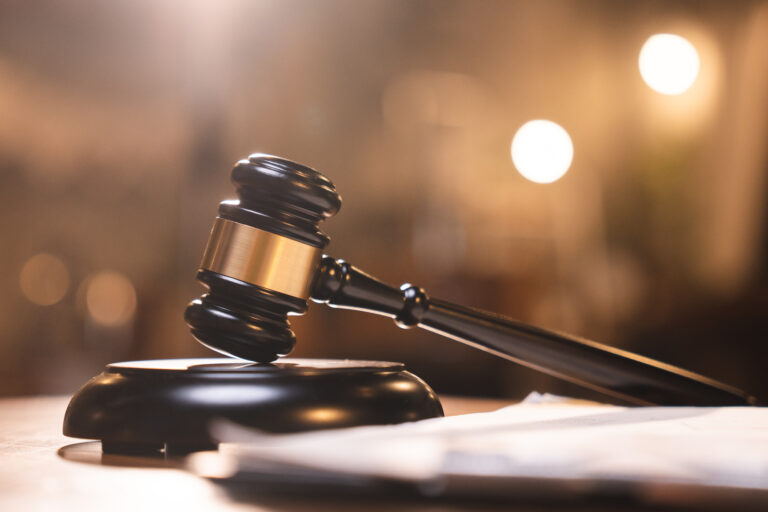Washington Supreme Court Examines the Use of Racial Bias in a Civil Jury Trial
From the Desk of Partner Joy Lee: On October 20, 2022, the Washington Supreme Court handed down a decision aimed at addressing the issue of racial bias in a civil courtroom and whether it played a factor in the verdict.
Claims Pointer:
In this case, the Washington Supreme Court analyzed a personal injury case of a Black female plaintiff and a White female defendant to determine whether an appeal to racial bias influenced the jury verdict. The Court ultimately held that racial bias had influenced the verdict, and that the plaintiff appropriately invoked CR 59(a)(9), which holds that a verdict affected by racial bias is incompatible with substantial justice and requires a new trial.
Henderson v. Thompson, 97672-4, 2022 WL 11469892 (Wash. Oct. 20, 2022).
Facts:
In June 2014, Janelle Henderson, a Black woman, and Alicia Thompson, a White woman, were involved in a motor vehicle collision. Thompson admitted fault for the collision but did not offer to compensate Henderson for her injuries. Henderson sued Thompson, claiming that the collision seriously exacerbated a preexisting condition. The case then proceeded to a jury trial to determine damages, where Henderson sought $3.5 million for physical pain, mental pain, and medical care necessitated by the collision.
At trial, Henderson, her attorney, and her witnesses were the only Black individuals in the courtroom. The rest of the involved parties, including Thompson, the defense team, the judge, and the jury members, were all White.
Henderson testified that, since the motor vehicle collision she had suffered from severe pain that prevented her from exercising or going out in public. Henderson’s treating physicians and several friends and family members corroborated Henderson’s testimony, testifying that the collision had a profound, negative effect on Henderson’s pain and reduced her quality of life. The defense responded by attacking the credibility of Henderson and her witnesses in the following specific manners noted in the Supreme Court’s opinion:
- Directly contrasting Henderson’s demeanor with Thompson’s, and characterizing Henderson as “confrontational” and “combative” while describing Thompson as “intimidated” and “emotional.” The Supreme Court held that these terms “evoke the harmful stereotype of an ‘angry Black woman’.”
- Arguing Henderson’s witnesses were “inherently biased,” suggesting that the witnesses had collaborated to fabricate a story about Henderson’s health. The Supreme Court held this relied on racist stereotypes about Black people and us-versus-them descriptions.
- Suggesting Henderson was only looking to profit from the collision, she was not injured to the extent she claimed, and she was solely motivated by the desire to acquire a financial windfall. The Supreme Court held this argument played into negative and false stereotypes about Black women being untrustworthy, lazy, deceptive, and greedy.
After deliberation, the jury returned a verdict of only $9,200 for Henderson, significantly lower than Henderson’s $3.5 million request, or even the defense’s $60,000 proposal. Notably, following the verdict, the jury also requested that Henderson exit the courtroom before they returned, and Henderson was made to leave the courtroom which was “humiliating and embarrassing.” 1 Clerk’s Papers (“CP”) at 172-177.
After the verdict, Henderson filed a CR 59 motion for a new trial or, in the alternative, for additur for an award of $60,000—the amount defense counsel proposed in closing argument. Henderson argued that Thompson’s defense counsel’s “biased statements in closing likely influenced the jury’s unconscious bias against plaintiff such that justice was not done” 1 CP at 134. She also “pointed to the award far below even the amount the defense had suggested and to the request for Henderson to leave the courtroom as evidence showing the appeals to racial bias must have affected the verdict.” In response, the trial court acknowledged that “using the terms combative in reference to the plaintiff and intimidated in reference to the defendant can raise such bias” but decided “[t]he terms were tied to the evidence in the case, rather than being raised as a racist dog whistle with no basis in the testimony” and “[t]he court cannot require attorneys to refrain from using language that is tied to the evidence in the case, even if in some contexts the language has racial overtones.” 1 CP at 180-81. The trial court did not grant a new trial or hold an evidentiary hearing on Henderson’s CR 59 Motion. Henderson appealed and the Court of Appeals granted direct review.
Law:
Under the standard adopted in this case, a new trial may be warranted when a party makes a prima facie showing of racial bias requiring an evidentiary hearing—whenever an “objective observer who is aware of the influence of implicit bias could view race as a factor in the jury’s verdict.” State of Washington v. Berhe, 193 Wn.2d 647 (2019).
Analysis:
The Court began its analysis by examining a standard outlined in Berhe, a recent Washington criminal case thatimplemented a two-step inquiry to determine whether racial bias affected a verdict. Under the Berhe standard, the court must grant an evidentiary hearing upon prima facie showing of evidence that, if “taken as true, permits an inference that an objective observer who is aware of the influence of implicit bias could view race as a factor in the jury’s verdict.” Berhe, 193 Wn.2d at 666. The Supreme Court clarified that “[t]his standard speaks to possibility, not certainty, and to impact, rather than intent” and found this standard applicable to civil cases as well as criminal.
The Supreme Court also expounded that at an evidentiary hearing on a civil motion for a new trial, the trial court must presume that racial bias affected the verdict. And at the hearing, the party benefiting from the alleged racial bias has the burden to prove that bias did not affect the verdict. If the benefiting party cannot prove that racial bias did not affect the verdict, then the verdict is “incompatible with substantial justice, and the court should order a new trial under CR 59(a)(9).”Applying the Berhe analysis, the Court ultimately concluded that Henderson had made prima facie showing that an objective observer could view race as a factor in the verdict and that the trial court erred in denying an evidentiary hearing. The Court reached this conclusion based on the language that Thompson’s counsel used to characterize Henderson and her witnesses, determining that the defense team had invoked negative, racial stereotypes and appealed to racial bias. Further, the Court determined that the trial court erred in denying an evidentiary hearing on Henderson’s motion for a new trial because the judge had “viewed the facts from her own perspective,” and not from the perspective of an objective observer as the standard calls for.
The Supreme Court, therefore, reversed the trial court decision and remanded for a hearing with a different judge on Henderson’s motion for a new trial.
Big Picture:
There is a two-step inquiry to analyze whether racial bias affected a jury verdict in civil cases. First, the court must ascertain whether an objective observer, who is aware of the influence of implicit biases on Washington verdicts, could view race as a factor in the verdict. After the moving party has made prima facie showing of the influence of racial bias, the court must grant an evidentiary hearing to determine if a new trial is warranted or whether there was sufficient evidentiary support for the arguments made.
Following this Washington Supreme Court Opinion, Thompson filed a Petition for Writ of Certiorari to the Supreme Court of the United States stating in her introduction, “these are the same types of arguments made every day in trial courts through out nation, and they are consistent with Washington’s own Pattern Jury Instructions)” (citations omitted). No decision has been made and the following questions are pending for review:
- Whether the Washington Supreme Court’s novel standard addressing implicit bias violates the Due Process Clause—by prohibiting counsel from presenting race-neutral, evidence-based arguments, in certain circumstances, while placing a burden on the non-moving party that is practically impossible to satisfy.
- Whether the Washington Supreme Court’s novel standard addressing implicit bias violates the Equal Protection Clause—by unconstitutionally injecting race-based decision making into the judicial process.

















